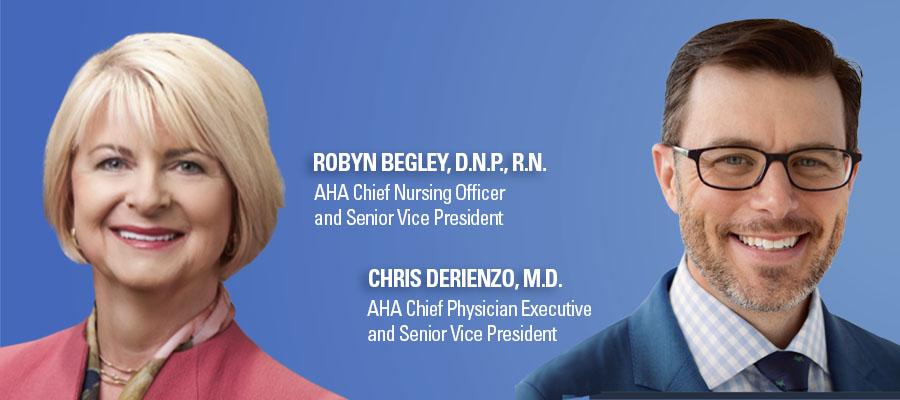Revisiting Clinician Credentialing to Support Well-being

Every day, America’s health care workers offer care and comfort to millions of patients and loved ones. They draw not only on their expertise, but also on their compassion, empathy and resiliency. Their selfless acts of caring are essential to delivering high quality, safe, equitable and person-centered care. At the same time, health care workers continually balance the strains of a fast-paced, technically challenging and emotionally charged profession with the demands of their own personal lives. As is the case for anyone, health care providers sometimes need the care and support of behavioral health care providers to ensure that they can lead emotionally healthy lives.
The American Hospital Association (AHA) believes that no health care worker should experience barriers to seeking or receiving behavioral health care. Consistent with that commitment, we encourage hospitals to examine any practices impacting whether health care providers seek behavioral health care services.
Specifically, hospitals and health systems have an opportunity to take a fresh look at questions regarding behavioral health that are used in credentialing and privileging applications for physicians and other providers. These questions focus on aspects of behavioral health that are not relevant to the clinician's ability to provide care and can be intrusive, perpetuate stigma around mental health services and create deterrents for health care team members to seek help when needed. AHA shares your commitment to supporting a thriving workforce and has gathered resources (see below) to help you review application questions and identify opportunities to remove stigmatizing or intrusive questions. While honoring the sacred duty of hospital and health systems to protect the patient, there is an opportunity to revisit these questions to promote a more open, healthy environment for all.
Hospitals, health systems, state licensing boards and other bodies are identifying ways to remove barriers to seeking mental health support by reviewing the questions asked on licensing, credentialing and other applications to ensure that they are focused on information relevant to the safe and effective provision of patient care.
In addition, hospitals and health systems are deeply committed to supporting the mental well-being of their workforces in other ways such as by reducing the stigma of seeking behavioral health care, improving access to services and reducing job stressors. The AHA has resources to support health care leaders in these efforts. We invite you to visit our workforce website.
Together, we can create a culture of healing.
Toolkit: Suicide Prevention: Evidence-informed Interventions for the Health Care Workforce
Hospitals and health systems leaders are committed to supporting mental well-being and improving access to behavioral health screenings, referrals and treatment when the workforce needs it. This AHA resource identifies three drivers of suicide: stigma, limited access to behavioral health resources and treatment, and job-related stressors. It offers a curated list of evidence-informed interventions that hospitals and health systems can implement to reduce the risk of suicide among health care workers.
Toolkit: Dr. Lorna Breen Heroes Foundation
Clinicians fear losing their license and credentials because of overly broad and invasive mental health questions on applications that are stigmatizing, discriminatory and violate privacy in the workplace — and may even violate the Americans with Disabilities Act. Ensuring that clinicians can access necessary mental health care benefits their well-being and improves the health of our entire country.
Federation of State Medical Board Recommendations: Statement on Reducing Burnout
Recommendations for state medical boards related to the licensing process include considering whether it is necessary to include probing questions about a physician applicant’s mental health, addiction or substance use on applications for medical licensure or their renewal, and whether the information these questions are designed to elicit, ostensibly in the interests of patient safety, may be better obtained through means less likely to discourage treatment-seeking among physician applicants.
Robyn Begley, D.N.P., R.N., is the AHA's Chief Nursing Officer and Senior Vice President. Chris DeRienzo, M.D., is the AHA's Chief Physician Executive and Senior Vice President.

